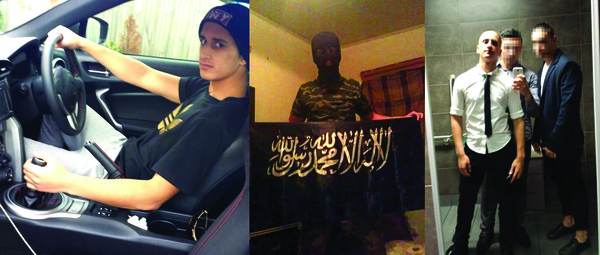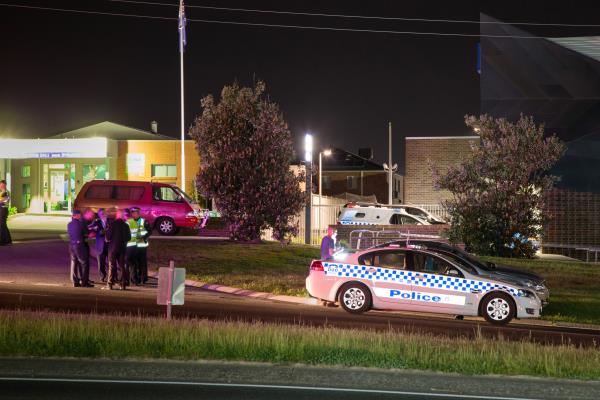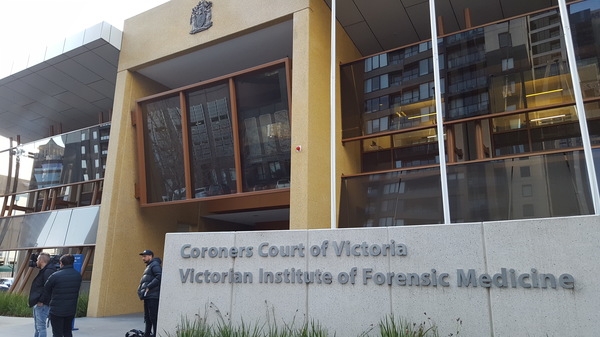By Cam Lucadou-Wells
Police and intelligence officers have been cleared of any adverse findings over the death of radicalised teen Numan Haider outside Endeavour Hills police station, State Coroner John Olle has found.
A piece of overlooked critical information may have prevented the fateful meeting between the 18-year-old and two police officers on 23 September 2014, Mr Olle stated in his findings on 31 July.
Haider was recorded during a call to an unidentified male that “If I had a knife I would’ve stabbed them” – referring to police who intervened in his Shahada flag-waving protest in Dandenong Plaza a week earlier.
“The police didn’t even search me.”
The call – which didn’t connect – was later uncovered by a Coroner’s investigator, but had not been captured by ASIO monitoring at the time.
It was the one piece of information that was likely to alter the police’s approach, Mr Olle said.
Utimately though, the cause of Haider’s death was his own dangerous conduct.
“I find that Numan engaged in a course of conduct that involved radicalisation and behaviour that was increasingly dangerous, ultimately causing his death,” Mr Olle stated.
Officer A, who had fired the single fatal shot, was left with no other realistic option after Haider had stabbed him and Officer B with a folding knife, Mr Olle said.
At that point, Haider had repeatedly stabbed Officer B to the head and neck, and had crouched over to stab the fallen officer’s stomach, Mr Olle said.
“Other non-fatal tactical options available to Officer A would not have prevented the potentially fatal injuries being inflicted on Officer B by Numan.”
Mr Olle found the risk assessments and decisions to meet Haider “could not reasonably be subject to criticism”.
Before his attack on police, Haider had made several Facebook posts supporting “extremist views”.
He sought weapons such as a knife and a Taser disguised as an iPhone.
He was believed to have visited an extremist Islamic centre in Bankstown just over a week before the fatal incident.
His passport was also cancelled due to the belief he could join overseas terrorist groups.
Days before, a Facebook post depicted Haider in a balaclava, military camouflage and holding a Shahada flag in the style of “members of terror groups”, and calling police and ASIO “dogs” in the wake of large-scale raids on mosques in Sydney and Brisbane.
Officer A and B had not been alerted to the post prior to the meeting. They later told the inquiry this was a significant omission.
Mr Olle said he couldn’t eliminate “hindsight bias” from assessing the post’s significance. He found there was no causal connection between that information and the manner and cause of Haider’s death.
Haider’s radicalisation transformed a “happy go lucky” teenager of a practicing Muslim family.
At age 7, Haider and his family had fled Afghanistan from persecution by the Taliban. He attended Southern Cross Primary School in Endeavour Hills and Lyndale Secondary College in Dandenong North.
In his last months, he lost interest in his apprenticeship and playing sport, became obsessed with Middle East issues and spent “inordinate” time with a group of young males.
He met some of the group at Hallam mosque, and with one of them he attended the Al-Furqan centre in Springvale South, which was linked to recruitment for jihadist groups such as Islamic State.
“It is those closest to the individual, such as Numan’s friends and associates in this case, that were best placed to be aware of his increasing radicalisation, but they did not act on it, for reasons which are unclear,” Mr Olle stated.
The coroner either treated Haider’s associates’ evidence with caution or “very little weight”. They did not give “full and frank answers” and seemed to serve their own and Haider’s interests, Mr Olle stated.
Haider’s parents, who had determinedly tried to separate their son from the group, were absent for the findings. They were said to be away overseas.









